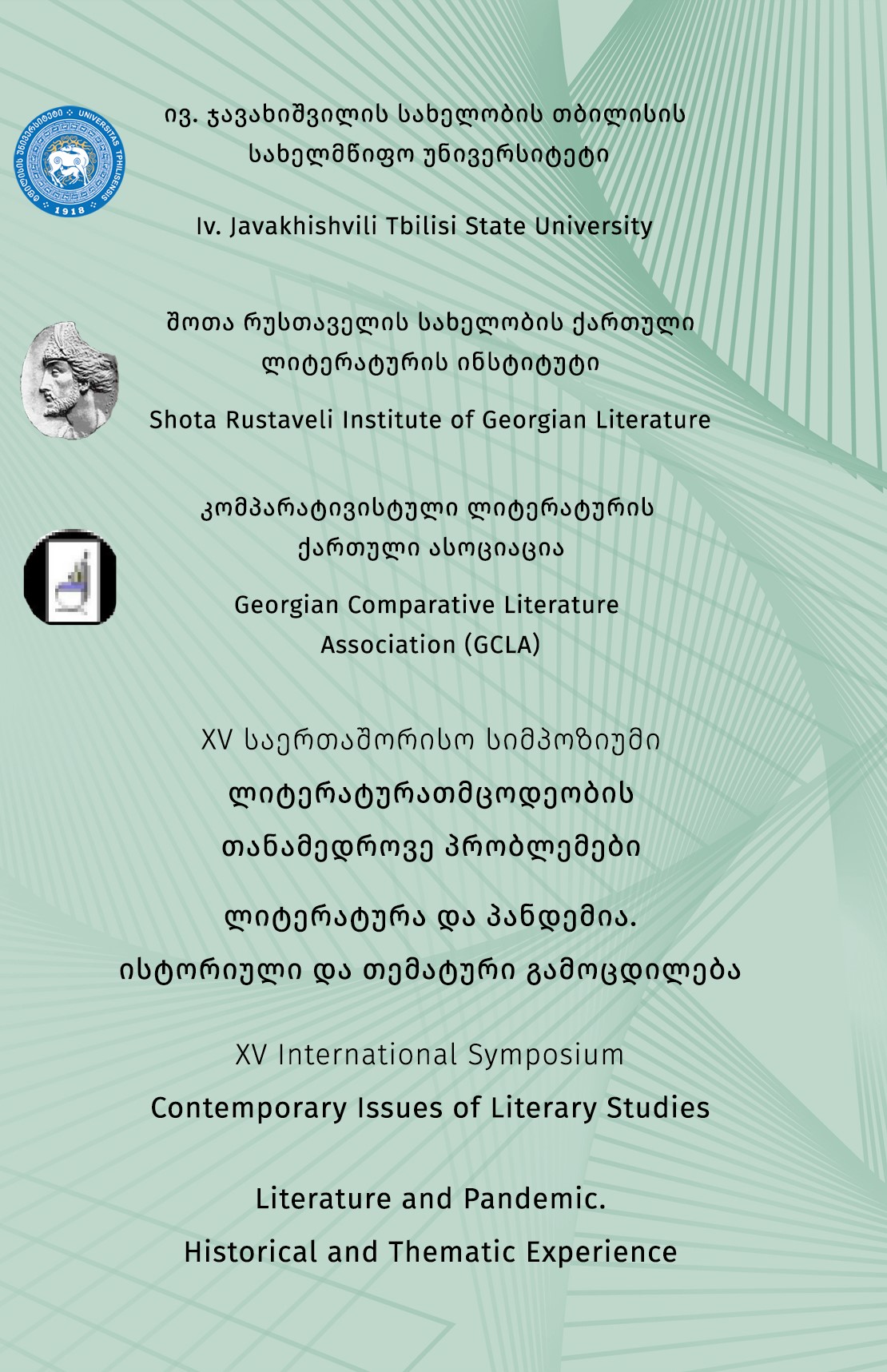გამოქვეყნებული 2021-12-20
საკვანძო სიტყვები
- Pandemica Text,
- Context,
- Sabaliauskaitė,
- Žižek,
- Apocalyptic Dramaturgy
ანოტაცია
The context of the pandemia evokes the apocalyptic sense to humanity and the corresponding reaction outspoken in thoughts – texts. Two contemporary texts could not be more different. The ghost of the past pandemics, the plague, makes a comeback to a memorable reality in Vilnius, Lithuania. 18th-century traces have survived and could be seen in the wall paintings in the Church of St. Peter and Paul in the form of two figures with bird-like beaked masks between hills covered with the bodies; therefore, the writer Kristina Sabaliauskaitė in her four volumes of “Silva Rerum” awakens this apocalyptic feeling of the global collapse, which had to disappear unavoidably into the oblivion of 200 years old history. The horror of the plague awakens many contexts and develops a dramatic whole of the road of human existence. Meanwhile, another, also a modern but very different text – the reaction to the Covid-19 global pandemia of 2020–2021 by the Slovenian philosopher Slavoj Žižek captures the dramaturgy of the void of panic, which covered the world and its purification into a “grey zone” – the very last sarcastic “victory” of a communist totalitarian state of China unified into the anonymous global state. Sacrifice and emptiness – the image of silence embodies a medial map of images like the apocalyptic hum typical of XXI century music and constrains the dynamics of actions. Therefore, two pandemical texts do not cover each other’s global

